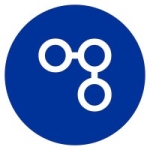As an Oracle DBA, while working upon high availability of your database you may stumble upon various Oracle strategic capabilities that fall into categories of Oracle Replication. Oracle provides various technologies for replication like GoldenGate, streams, and Active Dataguard. Replication being the primary purpose of all the mentioned technologies, each have different internal operational behavior. The purpose is to achieve maximum database availability, these mentioned technologies fully accommodate the requirement but internally there are differences at internal operational level. DBA's must learn and understand the functionality of both and know which technique can be used and in what scenario.
Let's discuss the differences between Oracle Active Dataguard and Oracle GoldenGate.
Oracle Active Dataguard is simple and the most economical solution for replication. The concept of active dataguard is a super set of traditional dataguard. It offers real time data protection and availability. Here in active replication you can place your secondary database in read-only mode, where the secondary database is available to users for limited usage like reporting and query offloading. Active Dataguard promises zero data loss across large distances without hampering performance. Other benefits to count on you can consider the capability of Active Dataguard to automatically repair the physical corruption without incurring any performance impact and availability of the dedicated servers. Using special purpose network devices Active Dataguard ensure minimal bandwidth utilization. With Active Dataguard DBAs can reduce the planned downtime to much extent while migrating or upgrading databases.
Oracle GoldenGate is the most advanced logical replication product from Oracle. This is especially well known for its cross-platform operating capabilities. GoldenGate provides a wide range of options addressing a number of customer replication needs. The basic principal is that it works up on is to capture online changes, distribute and deliver transactions across various secondary systems. The secondary database in this configuration which is available is read-write mode during replication and synchronizations, incurring additional overhead to maintain both database in same state. The beauty of GoldenGate lies in its capability to replicate the changes in heterogeneous IT environment taking into consideration all the components of IT along with various Database Management Systems. We can rely on the technology even in case of network outage between primary and secondary server located geographically at long distances. The recent release of product promises improved performance, reliability, consistency, conflict detections, data integrity etc.
It is really important to understand the feasibility of a solution taking into consideration the financial aspect of the organization while selecting an appropriate solution. Below are some comparison points that can let us decide which technology can be used to meet our requirements:
1. Use of Secondary Server: If there is any need to update the secondary server, you can do so with GoldenGate. Database is available in read-write mode and users can perform operation on the database. Whereas the database in case of Active Dataguard is open in read-only mode.
2. Supplemental Logging: With Active Dataguard you are not required to put on the supplemental logging for tables not having primary keys or unique indexes. Some configurations and settings with minimal performance overhead active dataguard handles most workload. GoldenGate compulsory requires supplemental logging tables with without primary key and unique indexes.
3. Maintenance & Migrations: Oracle Golden Gate provides the zero-downtime using 2-way or bi-directional replication. Whereas there are some scenarios where reduced downtime for various planned activities is not possible with Active Dataguard.
4. Cross-Edition migrations & replication: GoldenGate ensures the cross-platform replication and migration with zero-downtime. Active Dataguard requires the configuration to have same editions of database on the same operating platform on both primary and secondary environment. That means any cross-platform migration or replication is not provided by Active Dataguard.
5. Version backward Compatibility: GoldenGate is flexible enough to support the previous releases for replicating data from a newer version or release. This means that the data of Oracle 11g can be replicated on a Oracle 10g database.
Depending upon the requirements we can chose the replication technology. Even though we see the two different technologies separately there are some high availability architecture where both can be used.
Disclosure: My company does not have a business relationship with this vendor other than being a customer.
















Helpful because it explained the details in an appropriate manner.